This 1956 Fiat Transporter by Carrozzeria Bartoletti is the ultimate car hauler.
11.5-liter Leyland turbocharged six-cylinder industrial diesel engine, five-speed transmission, triple axle, and drum brakes.
• Commissioned as Formula One racing car hauler by Maserati racing team
• Used by Lance Reventlow’s Scarab racing team
• Subsequent use by Carroll Shelby’s race team, transporting Cobra Daytona coupes
• Utilized by David Piper, as well as Alan Mann and Lotus racing teams
• Featured in McQueen’s Le Mans
• Extraordinary, two-year, 8,000-hour restoration, culminating in Monterey Historics and Pebble Beach unveiling
• Finished in period-correct Shelby team livery
The extraordinary history of this unique Fiat Transporter begins with Lance Reventlow’s Scarab car building and racing concern; young Reventlow was the son of Woolworth department store heiress Barbara Hutton, and not unlike Carroll Shelby, he passionately believed that American ingenuity, hardware, car building skills, and racing drivers were good enough to take on anyone in the world, so he founded Reventlow Automobiles Incorporated (RAI) in Southern California’s “Thunder Alley” district (near where now sits the Los Angeles International Airport) and set out to build world-class sports racers,and ultimately Formula One machines, called Scarabs. Reventlow, much like Briggs Cunningham, Peter Revson, and others, was part of a rare set of American “gentlemen racers”: daring, enviable heroes with grit, talent, determination, and sizable inheritances to fund their bon vivant lifestyles.
Inside The Fiat Transporter
The small block Chevy-powered Scarab sports racers were beautiful and wildly successful; the Offenhauser-powered open wheelers were less dominating, but they all served notice that American designed, built, powered, and driven machinery could compete with the very best from anywhere, and win. Reventlow was a movie-star who was handsome, young, blonde, and known for dating Hollywood starlets. He proved a capable driver, and even more so was his hired gun, a then little-known sports car pilot named Chuck Daigh.
Italy’s Fiat, like GMC, built, and still builds, all manner of truck and bus chassis, and a handful of the latter were, in the 1950s, delivered to Bartoletti of Forti, Italy, a constructor of unique and special purpose industrial truck bodies. The Maserati Grand Prix team commissioned this particular 1956 model chassis as a car hauler for use during the 1957 and ’58 F1 seasons. It was designed to carry up to three cars, with large storage compartments on the side to hold extra parts, team uniforms, and loads of the supplies needed while travelling around Europe during the F1 season.
Shelby Livery On Fiat Transporter
306/2 proved to be the lucky bus, as Maserati won the Grand Prix world driver’s title in 1957, with Argentine ace, five-time world champion Juan Manuel Fangio at the wheel of the legendary Maserati 250F. After the 1958 Formula One season, Maserati began winding down its involvement in Grand Prix racing, and the big Fiat was sold to Reventlow Automobiles Inc. and became its GP team transporter for 1960 and ’61. In this iteration, one can see it in the archival photos of many books and magazines covering that time period. After serving the RAI team in Europe during those seasons, it was purchased by Reventlow’s Thunder Alley neighbor Carroll Shelby, in 1962, with the intent of using it to transport his Shelby American team of Cobra Daytona coupes to Le Mans and other stops along the Sports Car World Championship roster in Europe. Due to the fact that the Cobra sports cars weighed more than the open-wheel Scarabs, Shelby added an additional rear axle out back to improve stability and load capacity.
Post Shelby American, the transporter did car hauling stints in Europe for Lotus, privateer David Piper, and British Ford GT40 and Renault team Alan Mann Ltd., and as if this esteemed career wasn’t enough, the big Fiat rig earned a supporting role in Steve McQueen’s seminal racing film Le Mans, which was filmed during the summer of 1970. It played three roles in Le Mans: team transporter for Ferrari, Renault/Mirage, and Porsche, and it wore those iconic Gulf liveried blue and orange Porsche 917s on its mechanized steel back; the truck had to be repainted depending on the team hauler it was portraying.
After this brief Hollywood career, the Fiat was acquired by Michael Shoen. Shoen owned one of the famous Cobra Daytona coupes and believed the historic truck to be logical transport for it and his other Cobras. The big transporter, still wearing its Ferrari-style livery from the filming of Le Mans, was well worn out by this time, but the Shoen family owned the U-Haul Corporation, so dealing with large trucks was not far from their realm of familiarity. The Fiat Transporter was shipped to the United States and discovered unused in Arizona.
Following its ownership by the Shoen family, the truck was acquired by the current owner, a vintage racing driver of considerable success. The owner of several Scarab racing cars and restorer of numerous show-winners, he embarked on the sizable project of restoring the transporter, which was complete but in need of restoration.
With his own DBO Motor Racing team cued up for the restoration of a lifetime, parts sourcing commenced with a long, worldwide pursuit. The owner’s team of mechanics and fabricators was bolstered by another half dozen or so craftsmen of similar skills, plus specialists were brought in as needed. The restoration of this 80,000-pound rig was certainly monumental, but the talented crew persisted; what could not be properly repaired or refurbished was fabricated from scratch. Any missing Bartoletti badges and logos were recast. Total time invested amounted to an extraordinary 8,000 man-hours over two years.
Historic Photo of Shelby Team Soon After Buying Fiat Transporter
The original powertrain had been replaced along the way with a more modern, 11.5-liter (about 700 cubic inches) Leyland, turbocharged, six-cylinder, industrial diesel and five-speed automatic transmission, which ran well after a major mechanical recommissioning and detailing. The basic chassis was intact, although it needed to be stabilized and restored by an outside team of bus chassis experts. It was the bodywork that proved the biggest aspect of the job; the original body was stripped off to facilitate the restoration of the chassis and body framework, which was then refitted with virtually all new panels, fabricated by hand from new sheet metal stock. Another major undertaking was a complete reglazing, as every original window had been shattered along the way. Amazingly, one pair each of Reventlow and Daigh’s RAI team driving overalls still hung in the truck’s side storage bay. As they still do today.
Ferrari Livery On Fiat Transporter
The quality of this restoration is dazzling, and the owner credits his small team of artisans, “They did it all, I just watched, coached, and wrote big checks.” The truck presents immaculately and is authentic, absolutely clean, and detailed in every aspect.
After its two-year hiatus and makeover, the Fiat Transporter enjoyed an impressive public coming-out party in the paddock at Laguna-Seca Raceway in August of 2008; the vintage race attendees were wowed not only by the impressive stable of Scarabs but by the reborn bus that used to haul them around Europe. The following day, the Fiat Transporter appeared on the well-manicured lawns of the Pebble Beach Concours d’Elegance. As might be expected, it made quite an entrance at the world’s most significant collector car show.
Presented in its correct, original Shelby American team livery, the transporter is absolutely stunning. Any Shelby enthusiasts, particularly of competition cars, will surely find no more appropriate, historic, capable, nor impressive way of spiriting one’s stable to and from the racetrack than in the amazing, truly once-in-a-lifetime transporter offered here.
Photos of Fiat Transporter Courtesy of RM Auctions

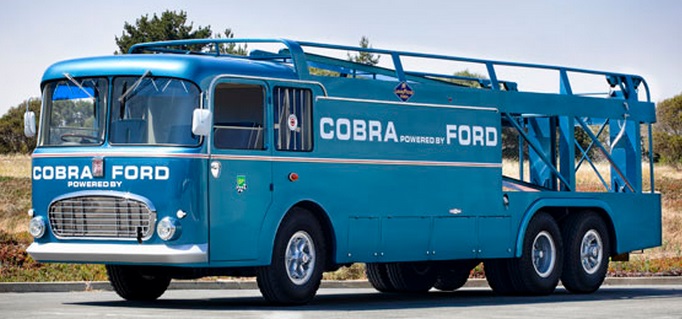


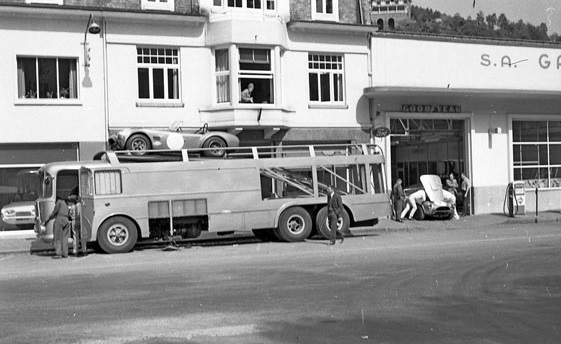

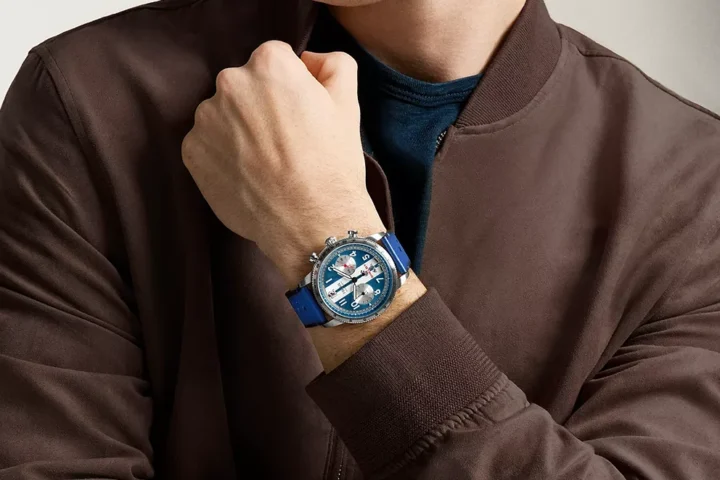
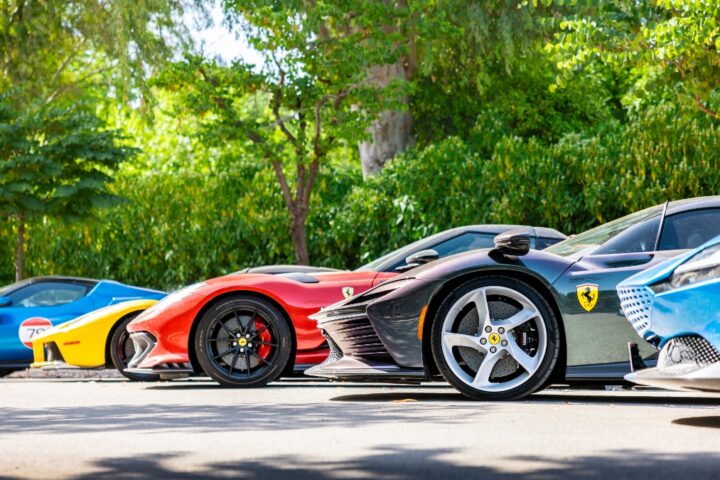


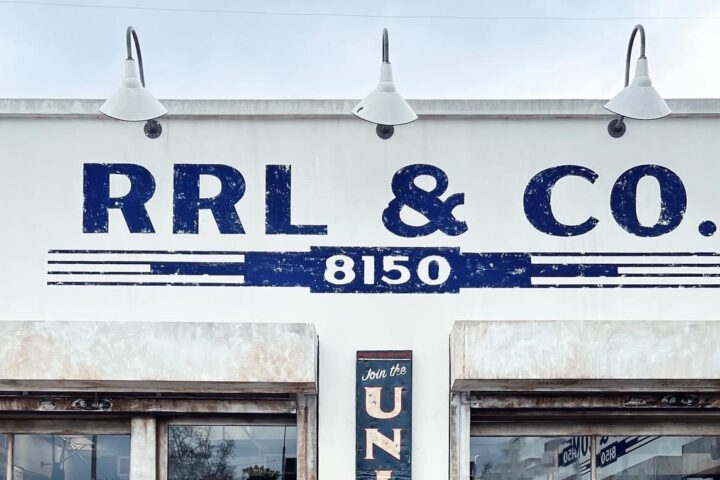
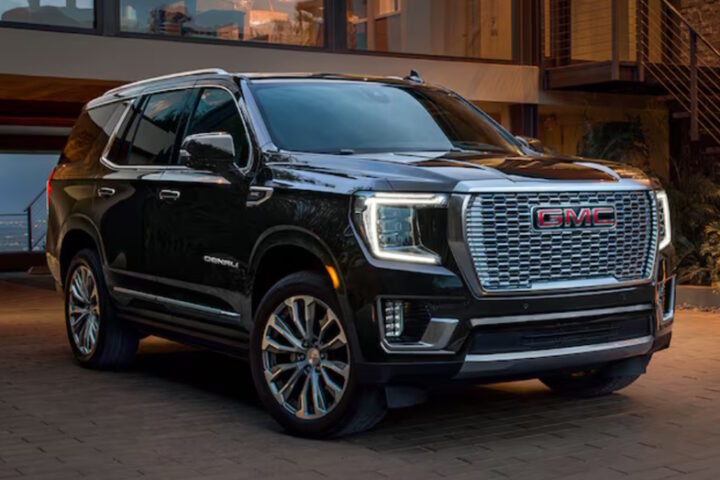
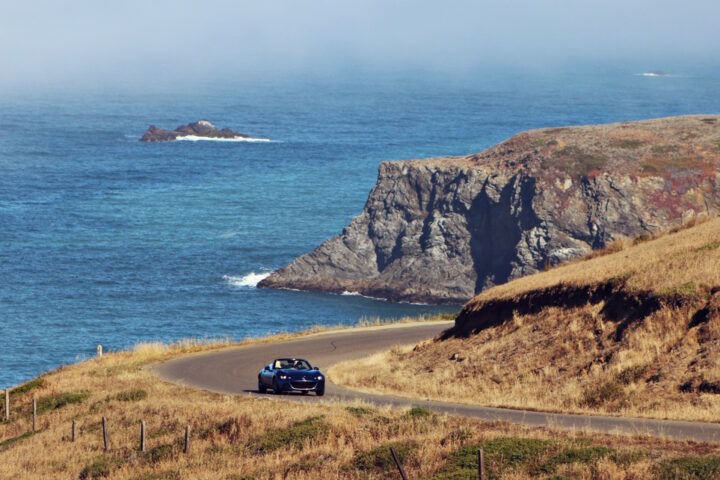
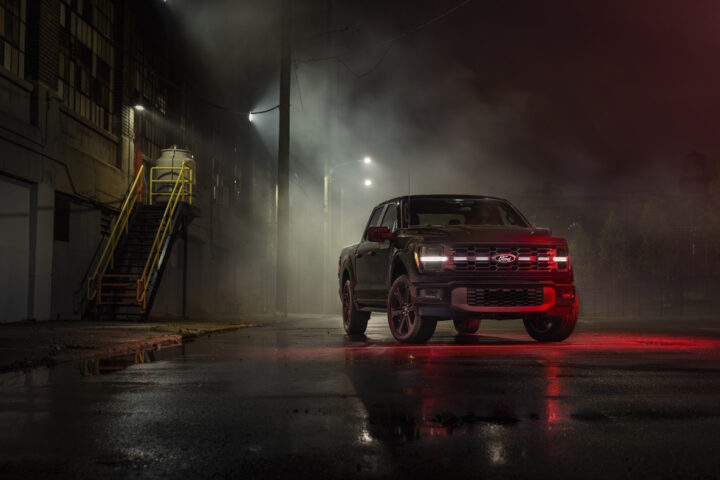
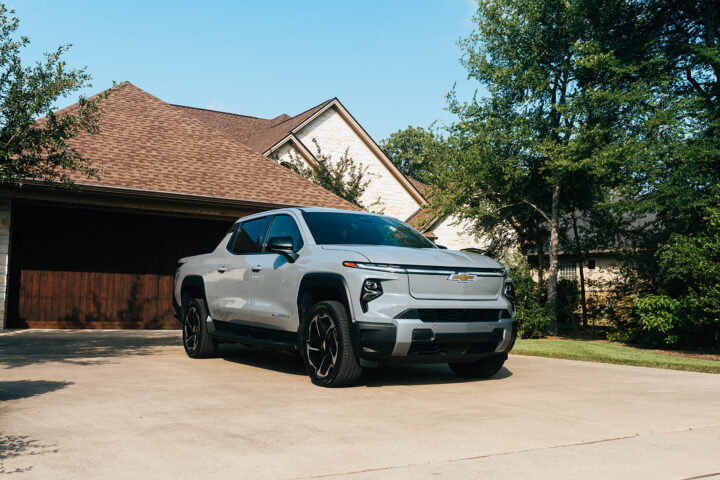
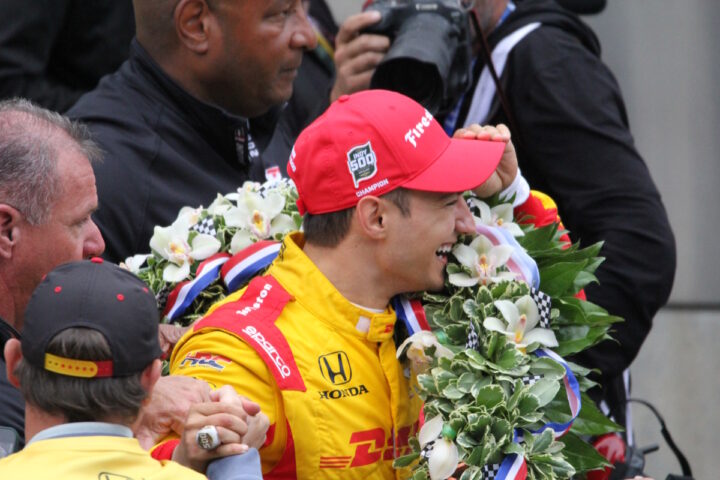
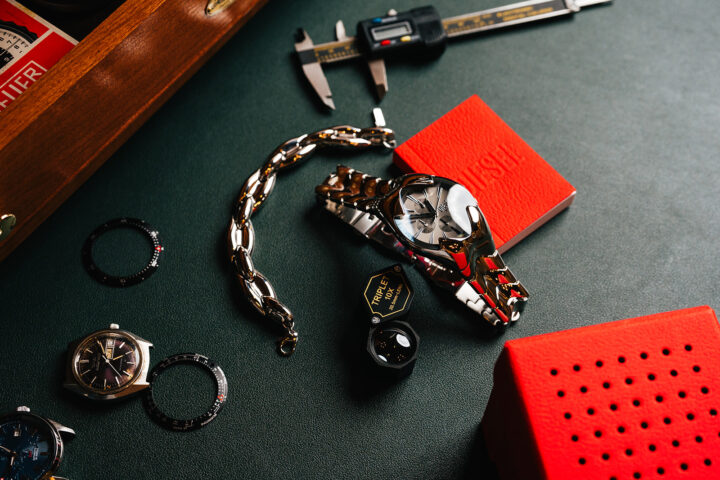
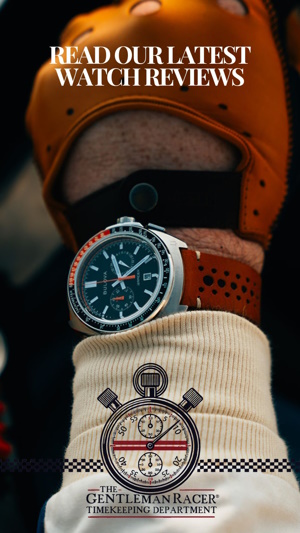

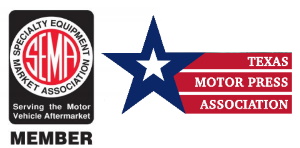
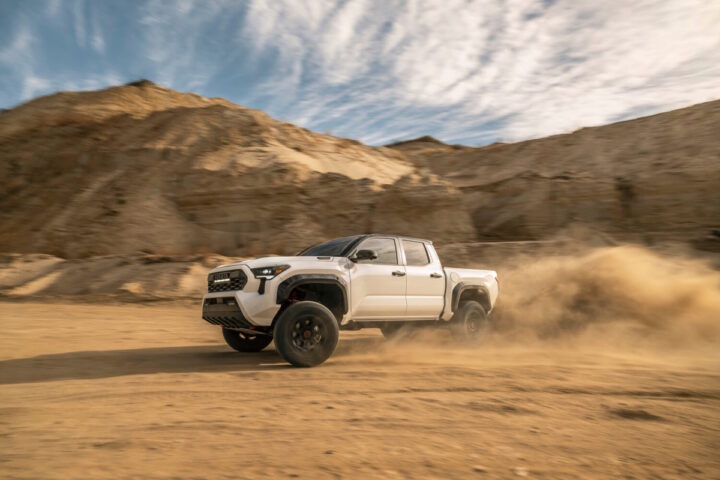
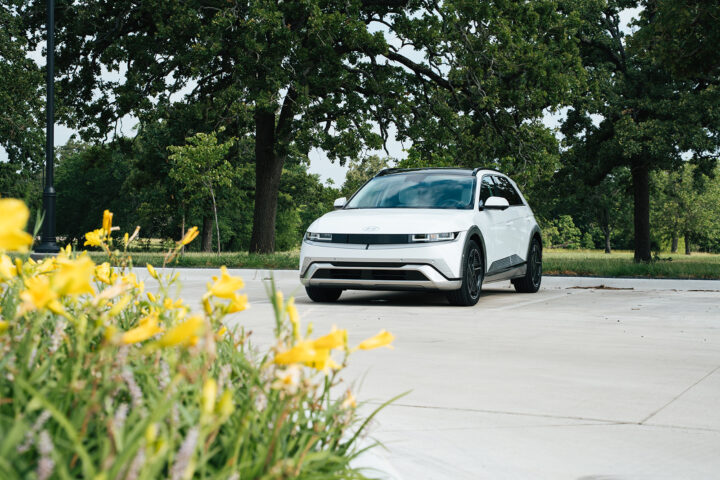
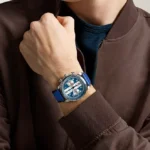

Such a cool transporter